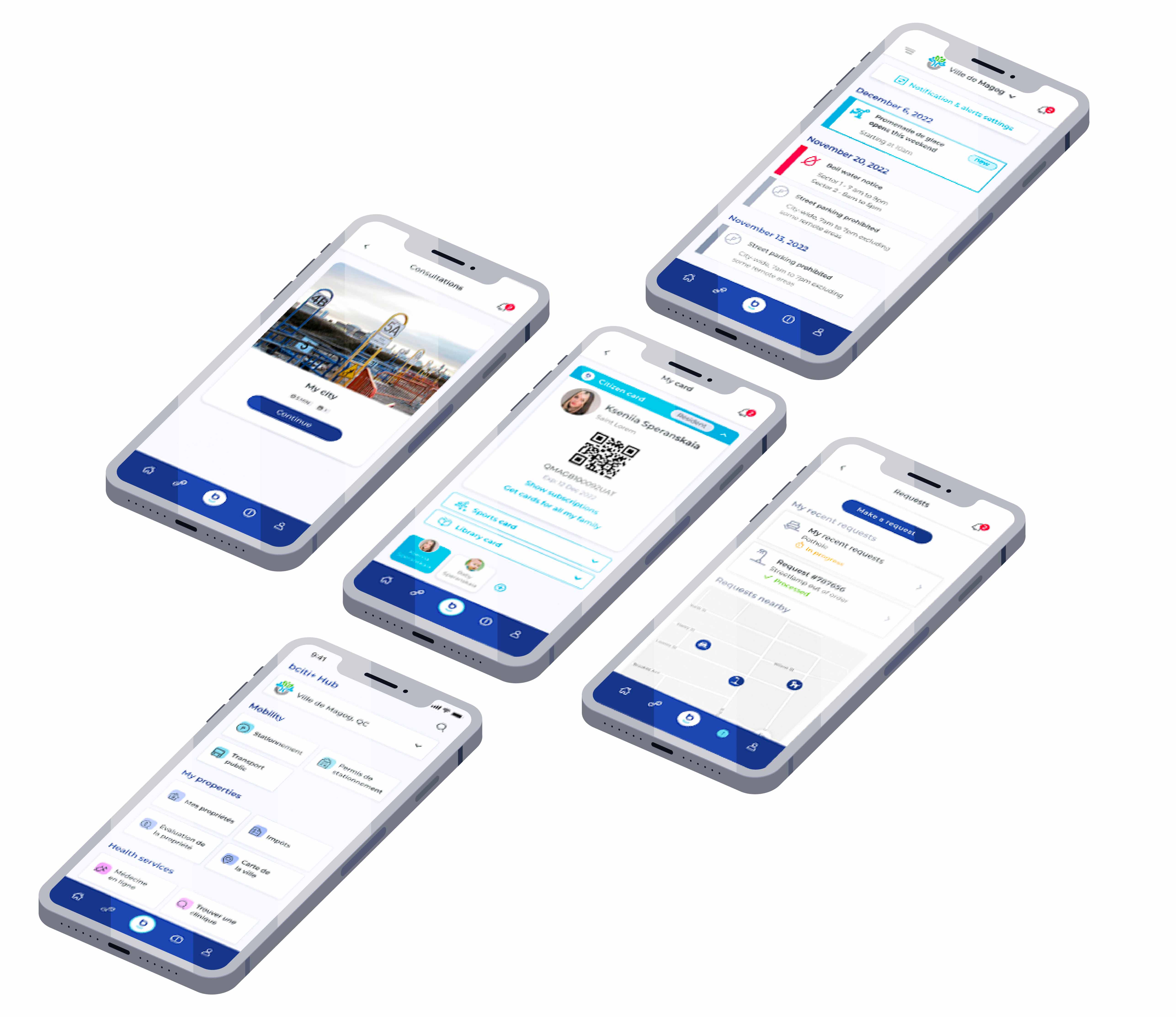How a Multi-Locality Interoperability Platform Stands Out from a Citizen Portal or a Website
Vivianne Gravel

In a world where the digital transformation of communities is essential to better serve citizens, it is crucial to understand the difference between an interoperable citizen platform like bciti+, a municipal citizen portal, and an institutional website. These solutions play complementary but distinct roles in managing urban services and information.
So, how does a platform like bciti+ stand out?
1. A Multi-Service, Multi-Partner, Multi-City Interoperable Platform
Unlike a municipal citizen portal, which is typically designed for a single city and managed by its administration, a platform like bciti+ allows citizens to access multiple cities and services (civic and urban) from a single account via a mobile app or a web portal.
- Unified Access to Services: Citizens can access their city's services, regional organizations, and even services in other cities where they live, work, or visit without needing to register on multiple platforms.
Seamless Experience: The digital environment remains the same regardless of the selected region, ensuring a consistent user experience.
2. A Connected Experience Beyond Civic Services
Municipal websites and portals are usually limited to city-specific services, such as municipal forms and registrations. In contrast, bciti+ expands its scope by integrating additional services and partners to enhance the user experience.
EcoLocal Digital Card
- Facilitates faster registration for partner services.
- Enables payments for parking, facility access, and special privileges.
- Example: Brossard uses it for aquatic center access via automated door unlocking.
Civic and Urban Services
- Provides information on service hours and essential daily services.
Local Events and Businesses
- Thanks to partnerships with chambers of commerce, bciti+ includes an economic component with EcoLocal, which supports local businesses and connects citizens with nearby services and events.
Requests & Reports
- Allows users to submit requests concerning the city or other local organizations.
Personalized Alerts & Notifications
- Users receive customized updates based on their preferences and interests.
3. A Model Based on Citizen Engagement, Interaction, and Transactions
Municipal websites are typically static information platforms, requiring users to search for the services or documents they need. In contrast, bciti+ is built on interactivity, engagement, and transactions:
Personalized Access
- The platform adapts based on the citizen’s status (resident, worker, visitor) to provide relevant services and information.
Multi-Partner Connection
- Municipalities, businesses, local associations, and chambers of commerce can interact with citizens on a single platform.
Seamless Transactions
- Citizens can purchase services directly (e.g., transportation, recreation, local commerce) within the platform.
4. A Privacy-Respecting and Ethical Data Management Model
One of the major concerns of citizens is data privacy. Bciti+ operates under a model where users retain ownership of their data.
BTrusted bciti+
- A patented button enabling users to transfer personal data to forms with explicit consent.
Transparency & Control
- Users manage their data and can delete it at any time.
Ethical Interoperability
- Unlike platforms like Google or Facebook, which exploit user data for targeted marketing, bciti+ ensures a secure, ethical approach, keeping user data under their control.
5. A Scalable Solution That Adapts to Community Needs
Municipal websites and portals require continuous investment for updates, whereas bciti+ is an evolving platform that integrates the latest technologies based on user feedback.
Feature Upgrades Without System Overhaul
- Any community using bciti+ instantly benefits from new updates and innovations.
Fast Deployment & Cost Optimization
- Developing a custom citizen portal can be costly and time-consuming. Bciti+ enables quick and easy integration.
Conclusion: bciti+ and the Future of Digital Governance
In summary, bciti+ does not replace municipal websites or citizen portals but complements them by enhancing service accessibility and bringing citizens closer to their local environment.
With its multi-city, multi-partner, multi-service, and interoperable model, bciti+ connects citizens, businesses, and community organizations in a smarter way.
More than just an information portal, bciti+ is an intelligent, unified ecosystem designed to improve citizens' daily lives while respecting privacy and encouraging economic growth.

